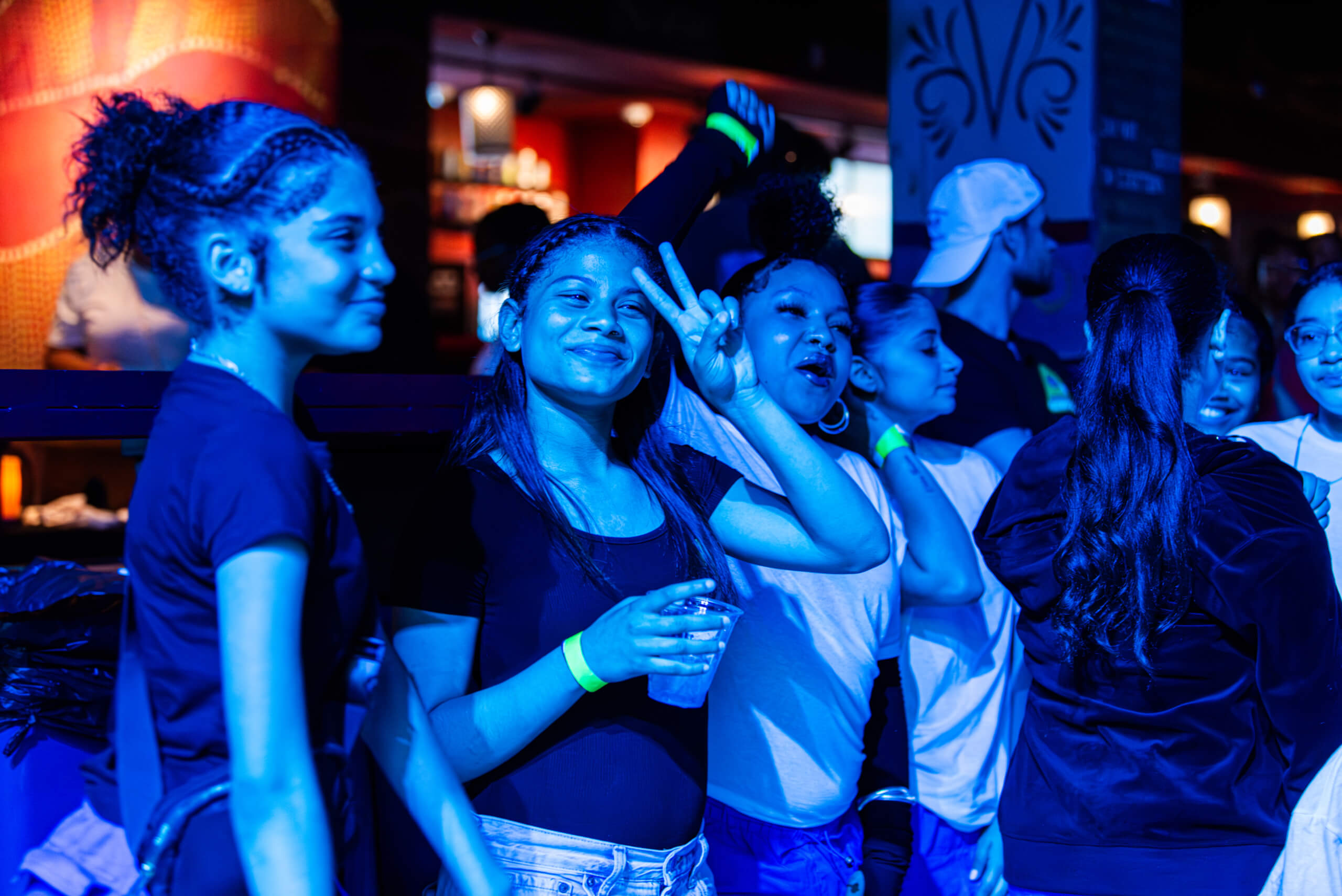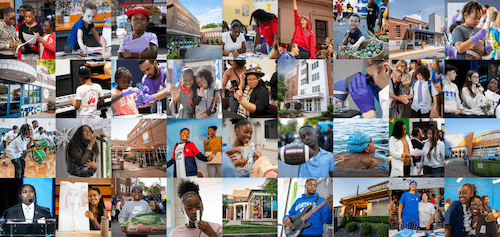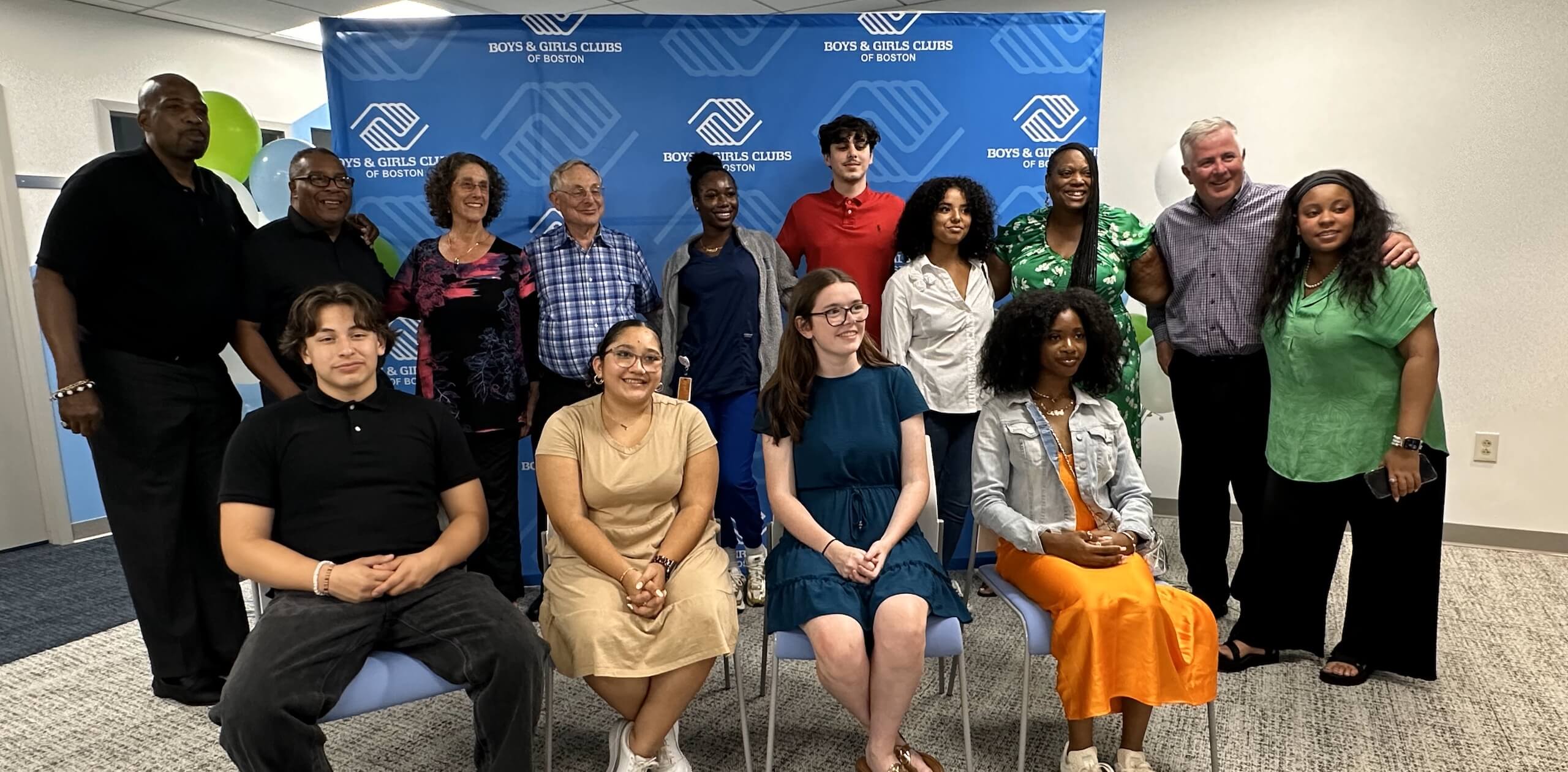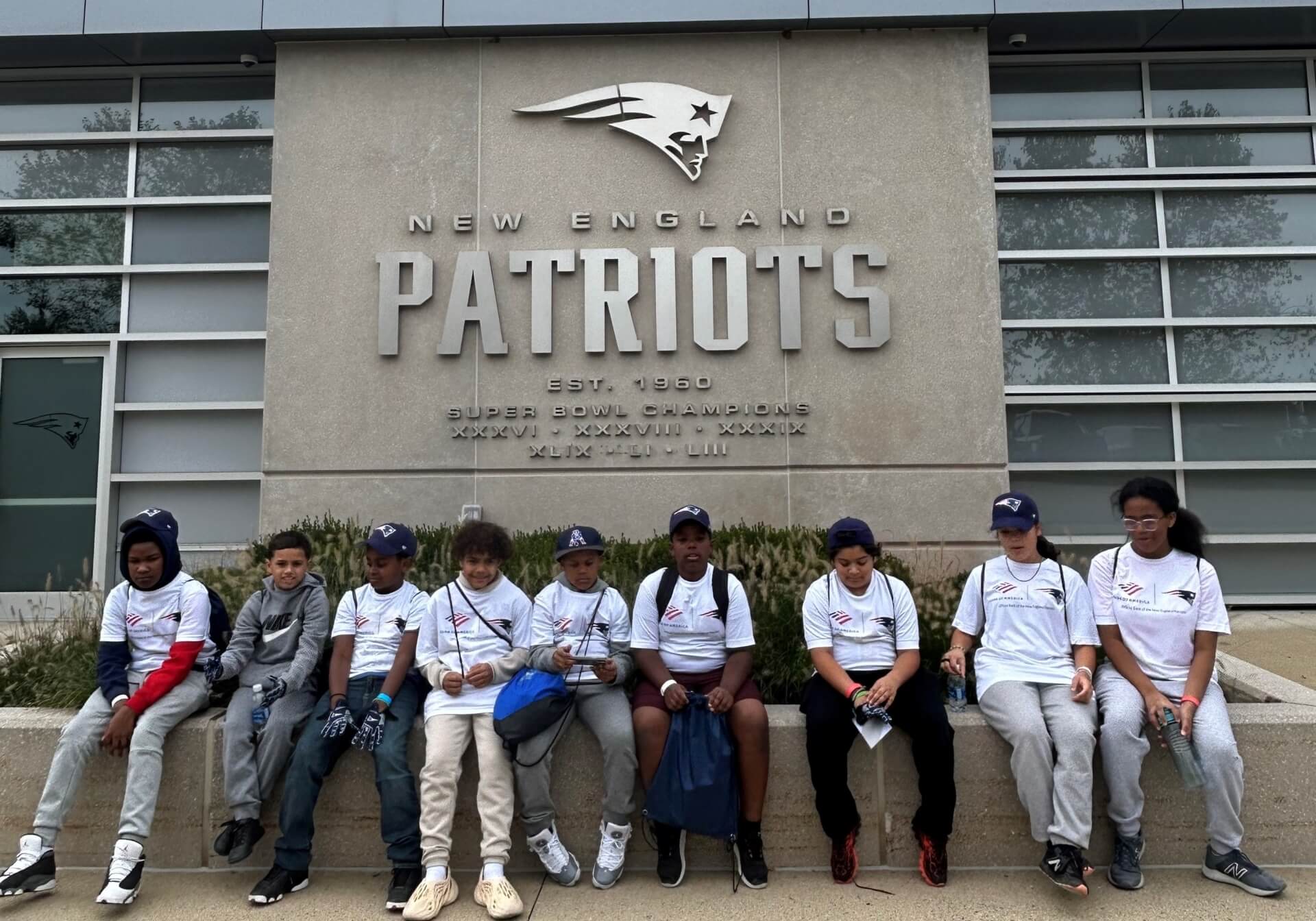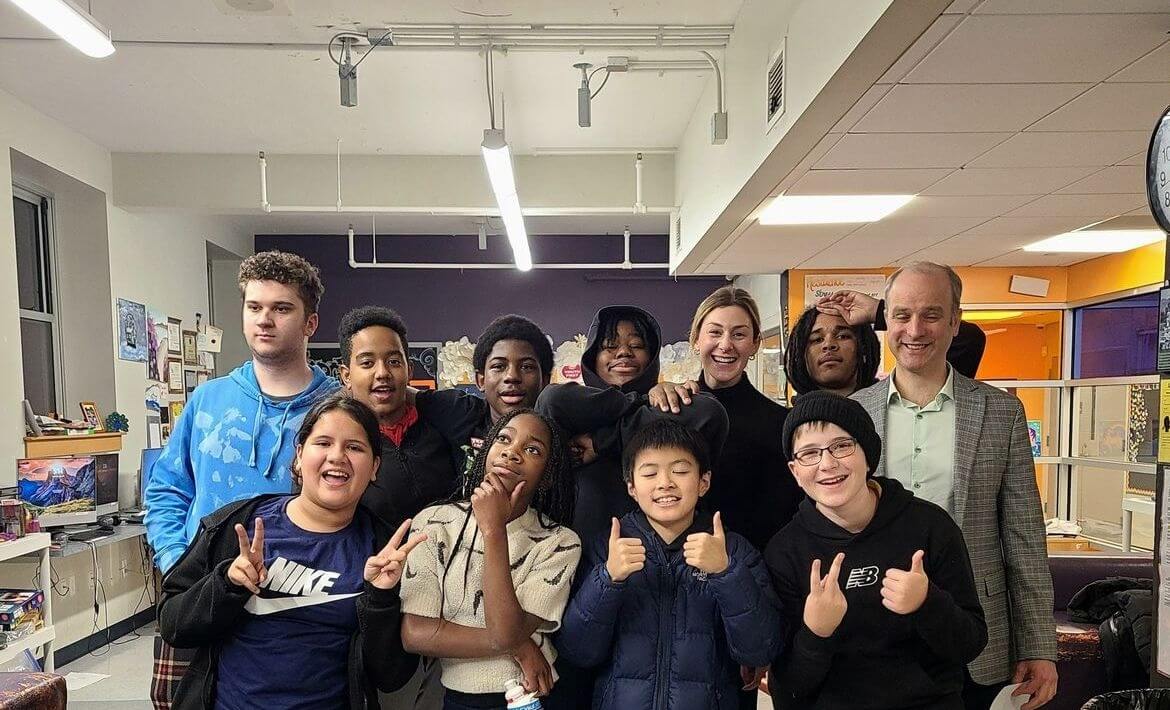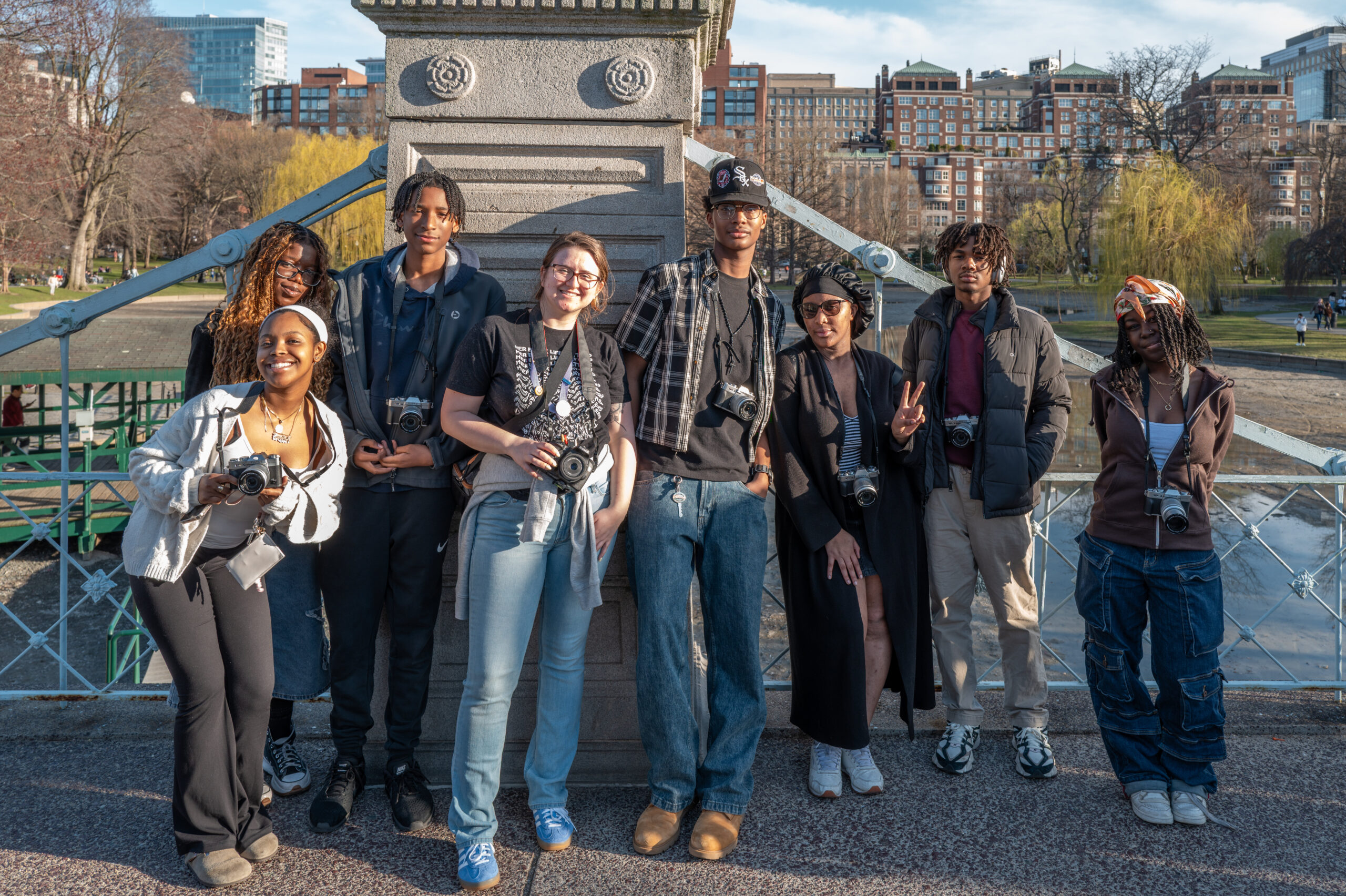At the Josh Kraft Mattapan Teen Center, social work doesn’t happen only in an office or across a desk. It happens in the game room, during art class, or while walking home alongside a member. The role is woven into the daily rhythm of the Club, where teens feel most themselves.
For Emily Merchant, LCSW, who has been at the Teen Center for three years, the foundation of her work is presence. “It’s my job to meet teens where they are,” she explains. That might look like checking in about a tough class, playing a quick video game, or simply asking how someone’s day is going. Over time, those small moments build trust and open the door to deeper conversations.
Building Trust Through Everyday Moments
Teens are at a stage where relationships are everything, and trust takes time. Emily has learned that the best breakthroughs rarely start with a formal sit-down. Instead, they come in unstructured moments: a member lingering after homework help, a quiet conversation in the art room, or an impromptu joke that turns into a meaningful check-in.
“Sometimes it’s just about showing up consistently,” she says. “When a teen sees that I’m here every day, checking on them, celebrating their wins, and holding them accountable, they realize I care.”
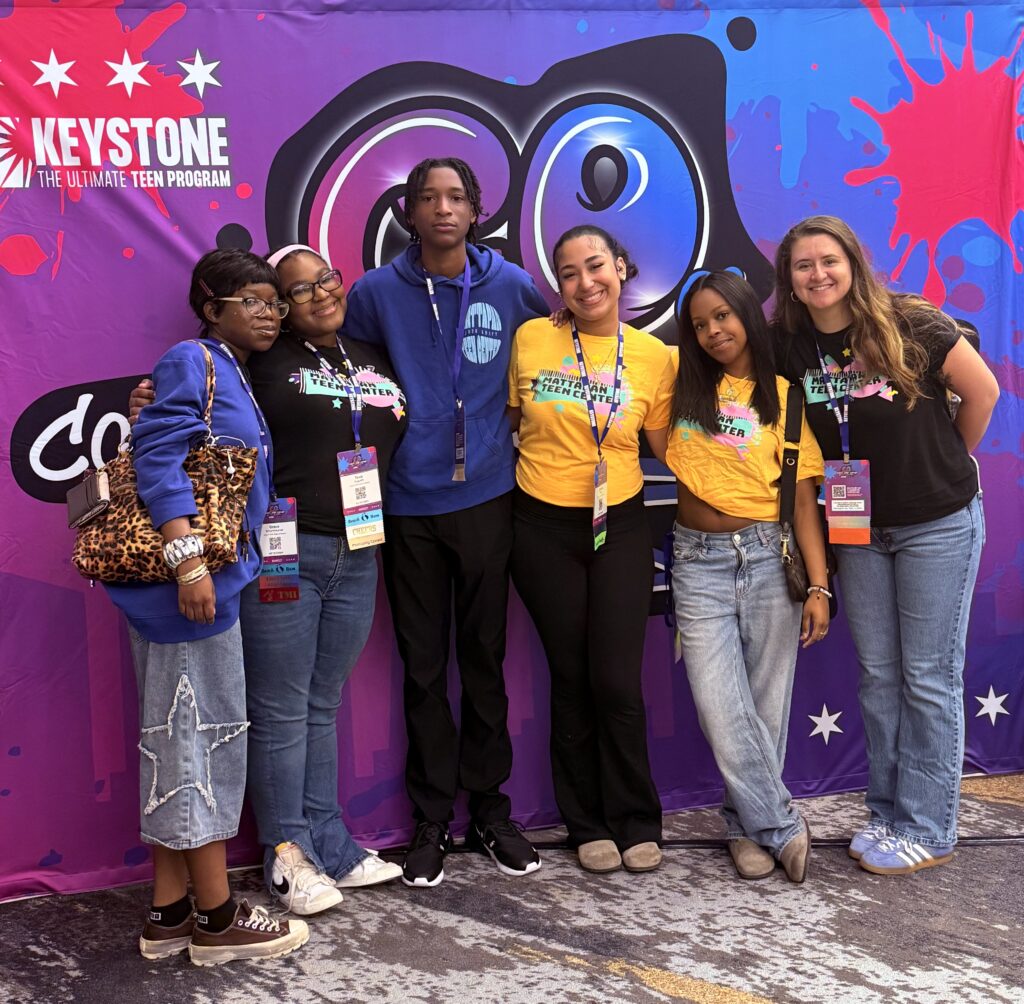
That consistency makes it easier for young people to lean on her when life feels heavy. And because the setting is familiar and welcoming, conversations about stress, relationships, or mental health feel less intimidating.
Empowering Teens With Tools for Growth
At the Teen Center, Emily leads the Self-Love Club, a program that uses expressive arts as a pathway to build coping skills and confidence. Members might practice grounding exercises, paint to express emotions, or create toolkits they can take home, complete with laminated cards that remind them of strategies like the 5-4-3-2-1 technique for calming anxiety.
“A lot of teens are still learning how to articulate what they feel,” Emily explains. “If words aren’t there yet, music, art, or photography can be a powerful way to communicate.”
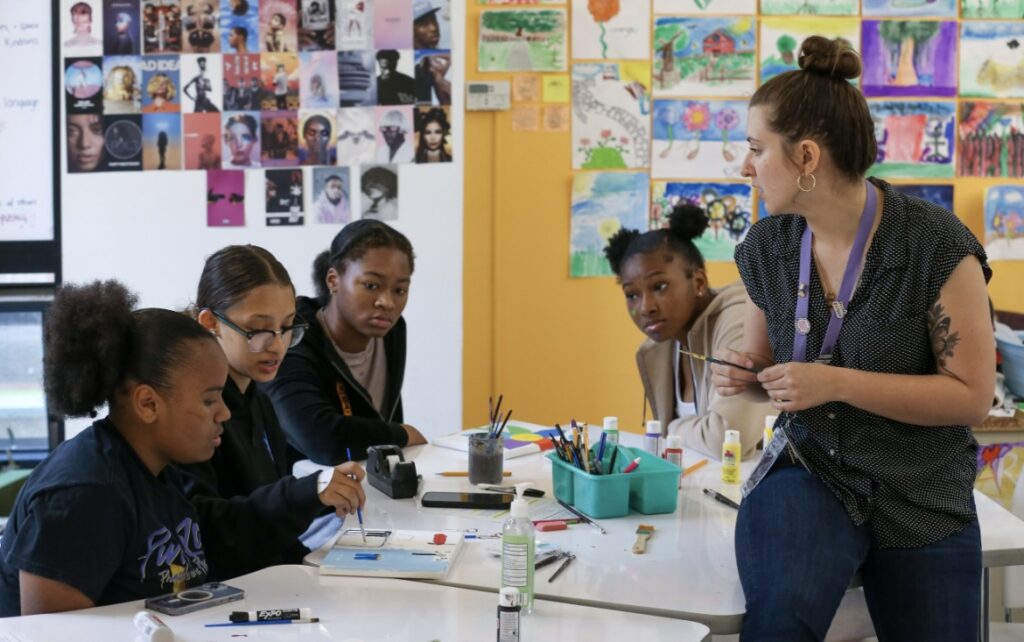
Advocacy Beyond the Club
The goal is not perfection but progress. By normalizing creativity as a form of self-expression, teens learn that mistakes are part of growth. Many proudly display their work on the walls of Emily’s office, a constant reminder of their voice and value.
Emily’s role extends beyond the four walls of the Teen Center. With family consent, she connects with schools to ensure members get the support they need. That can mean joining meetings about IEPs or 504 plans, coaching parents through confusing processes, or sharing what has worked well at the Club so teachers can try similar approaches in the classroom.
For families navigating complicated systems, this advocacy makes a real difference. “Parents will tell me they feel like the school isn’t listening,” Emily says. “Having someone on their team who knows their child and can speak to their strengths helps them feel more confident.”
Small Wins That Add Up
One of Emily’s favorite moments came during a simple strengths exercise. She asked a member to list things he was proud of about himself. He couldn’t name one. Drawing from her observations, Emily listed ten strengths she had seen in him and wrote them on a whiteboard. When he read them out loud, he smiled and teared up, the first time he had ever spoken those words about himself.
“That moment reminded me why this work matters,” she says. “Now, everyone leaves here knowing their strengths. That’s not optional.”
Success, for Emily, isn’t about a dramatic turnaround. It’s about those steady steps: a teen using a breathing technique before a test, showing pride in their artwork, or reaching out for support instead of shutting down.
A Second Home for Teens and for Staff
For many members, the Teen Center feels like a second home. Emily feels the same way. “Boston didn’t really feel like home until I started working here,” she shares. “I’ve learned so much from our teens, their resilience, their creativity, even their sense of humor. It’s a privilege to walk alongside them.”
Social work at a Boys & Girls Club is rooted in belonging, empowerment, and advocacy. It’s about meeting teens in their everyday spaces, helping them discover their strengths, and building a network of support that extends into their schools, families, and futures.
Curious to learn more about BGCB? Learn more and get involved today.
